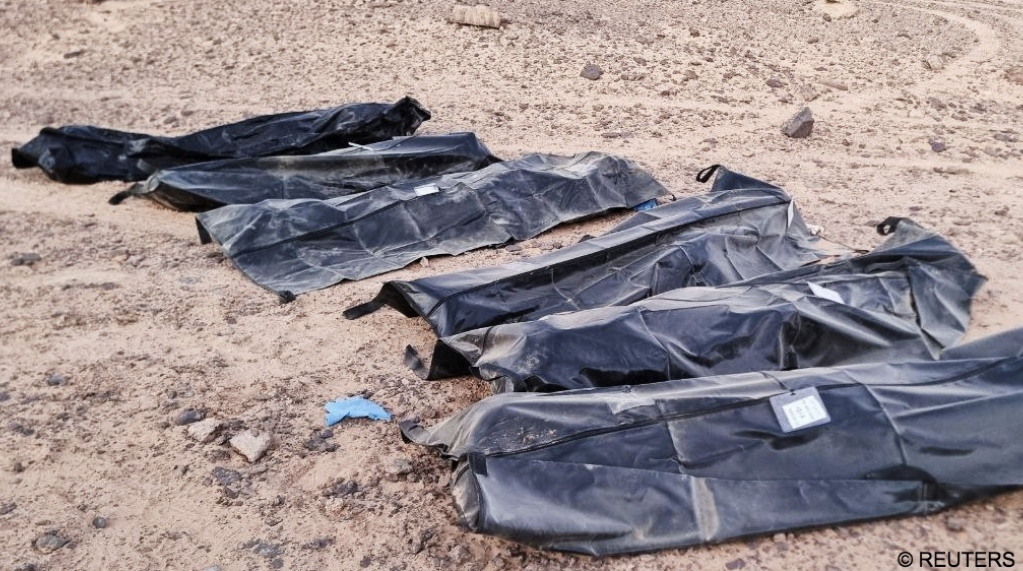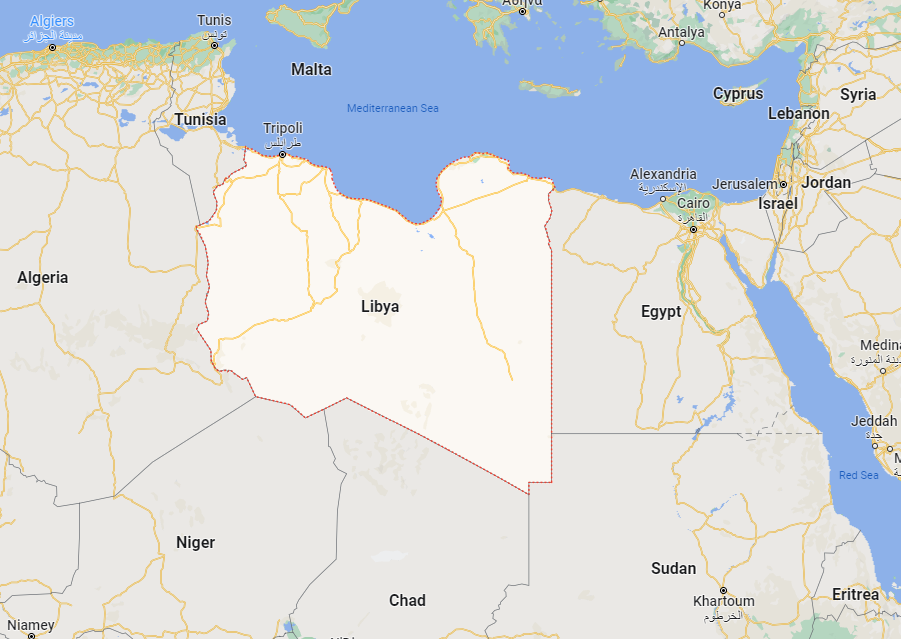The United Nations has confirmed that at least 93 bodies have now been recovered from mass graves in Libya. The discovery followed a raid on suspected human trafficking sites, where 76 migrants were reportedly freed and three suspects were arrested.
The United Nations announced that the number of bodies recovered from two mass graves in Libya has now reached 93, news agency Agence France Presse reported Wednesday, (February 19).
"The alarming and tragic discovery of mass graves following raids on human trafficking sites highlights the severe danger faced by migrants in Libya," Rosemary DiCarlo, the United Nations Under Secretary General for Political and Peacebuilding Affairs, said in a statement.
One mass grave was found on a farm in Jakharrah in northeastern Libya on February 7. The following day, another mass grave was discovered in Kufra in the southeast. The UN official did not give a breakdown of how many bodies were found at each burial site.

The discovery of the mass graves follows raids on suspected human trafficking networks where authorities reportedly released 76 sub-Saharan migrants.
The raid targeted "a gang whose members deliberately deprived illegal immigrants of their freedom, tortured them and subjected them to cruel, humiliating and inhumane treatment," AFP reported, citing the Libyan attorney general's office.
"A full and independent investigation is critical to bring the perpetrators to justice. This is yet another reminder of the urgent need to protect migrants and combat human trafficking," DiCarlo said in her statement.
Read AlsoScores of bodies uncovered in Libyan mass graves linked to human trafficking
Outcry and outpouring of grief
The discovery of the mass graves in Libya has caused a rippling outcry. It follows Italy’s arrest and then subsequent release of Osama Najim al-Masri, a Libyan high-ranking security official who has been implicated in human rights violations of those in detention, after a warrant was issued for his arrest by the International Criminal Court in the Hague.
Al-Masri was detained under the ICC warrant in Italy in January, but soon after was repatriated to Libya on board an Italian government plane. The Italian authorities cited "security concerns" as a reason for the release. They are now facing questions from the ICC about that decision.
The International Organization for Migration (IOM) expressed shock and concern at the discovery of two mass graves.
"The loss of these lives is yet another tragic reminder of the dangers faced by migrants embarking on perilous journeys," said Nicoletta Giordano, IOM Libya's Chief of Mission. "Far too many migrants along these journeys endure severe exploitation, violence, and abuse, underscoring the need to prioritize human rights and protect those at risk."
Cause of death: unknown
The IOM reported that the cause of death and the nationalities of the deceased were unknown but stated that some had gunshot wounds.
"IOM acknowledges the efforts of the Libyan authorities in investigating these deaths and urges them, along with UN partner agencies, to ensure a dignified recovery, identification, and transfer of the remains of the deceased migrants, while notifying and assisting their families," the IOM said.
The European Center for Constitutional and Human Rights (ECCHR), a legal non-profit, called on the European Union to review its funding arrangements with countries implicated in human rights violations. In a statement on its website, the ECCHR said that the European Commission took steps to review its financial support for Tunisia following reports of abuses by security forces.
"The EU should follow suit in Libya," said the ECCHR.
The European Union (EU) has allocated approximately 700 million euros to Libya for humanitarian assistance and peacebuilding through various funding instruments. An estimated 13 percent of the funding goes to border management.
The Libyan Desert: trade & smuggling routes
Libya is a popular launch pad for African nationals attempting to enter Europe by crossing the Mediterranean. To get into Libya, many migrants from further south in Africa tend to cross into the country in the desert region in the south, east or west of the country, through neighbors Algeria, Niger, Chad, Sudan and Egypt.

The Libyan Desert, which lies in the northeastern portion of the Sahara and extends from eastern Libya through southwestern Egypt into the far northwest of Sudan, is a main corridor for smuggling migrants across borders.
An analysis of key transit hubs in Libya indicates that Kufra, where one of the mass graves was discovered, is a pivotal launchpad for the "cross-border movement of goods and people".
Smuggling whether of goods or people has become a key part of the economy following the political instability created in the aftermath of the death of Muammar Gaddafi who ruled Libya for over 40 years.
